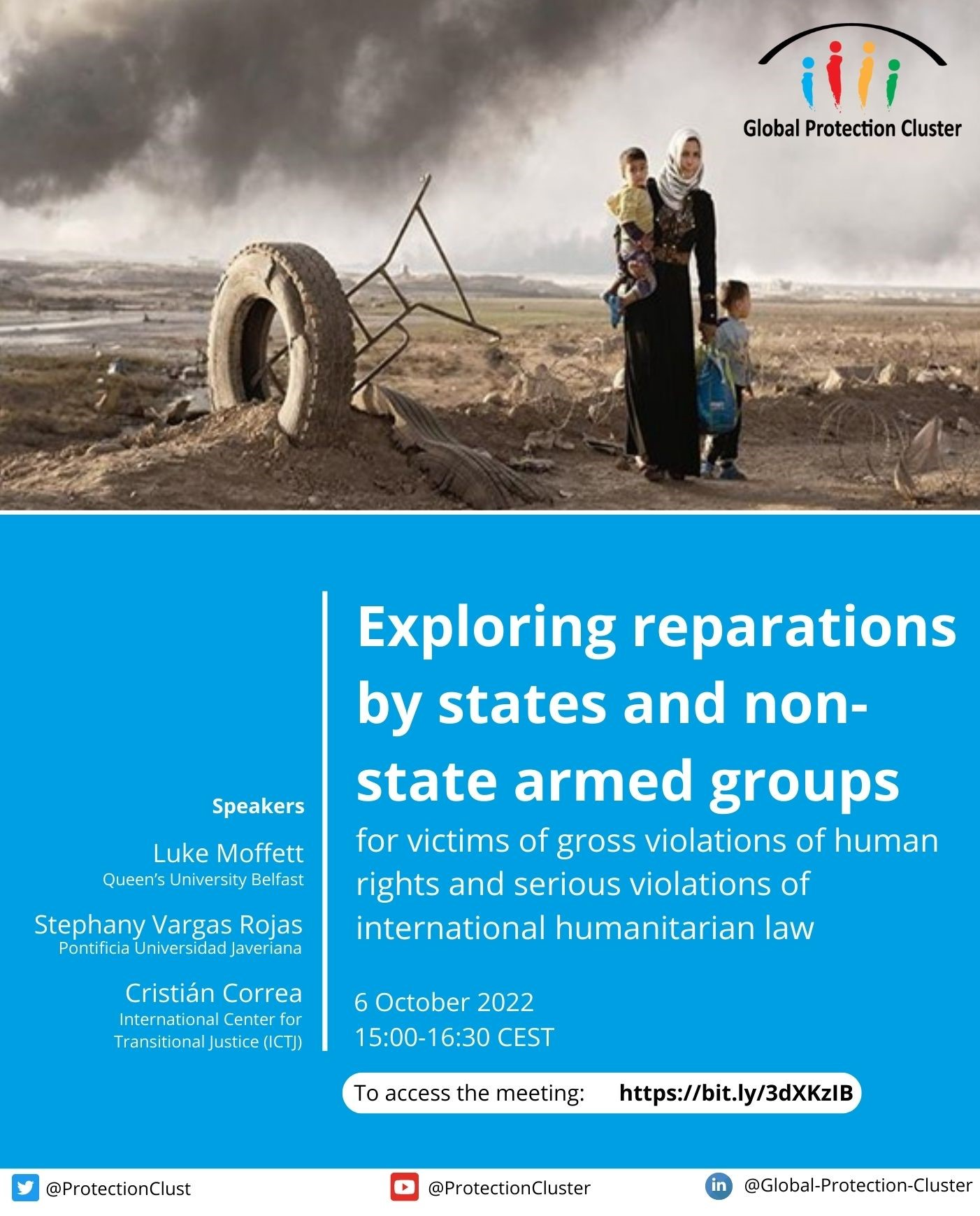Over the past thirty years, a strong body of international norms and jurisprudence on the right to reparations for victims of gross violations of human rights and serious violations of IHL has emerged alongside international and domestic reparation programmes to deliver redress to victims. Despite these developments, a substantial implementation gap and time lag remain between violations and redress that exacerbate victims’ circumstances and quality of life, and leave affected communities vulnerable.
These issues remain extremely relevant in most settings where Protection Clusters are active and relate to most - if not all - aspects of protection actors’ work, including gender-based violence, child protection, and housing, land and property. In this context, this webinar aims to explore how can protection actors work more effectively to support victims’ access to reparations by state and non-state armed groups? What are some of the most common challenges, key lessons learnt and good practices that can be shared from past experiences? What tools are available to support those interested to do more in this area?


